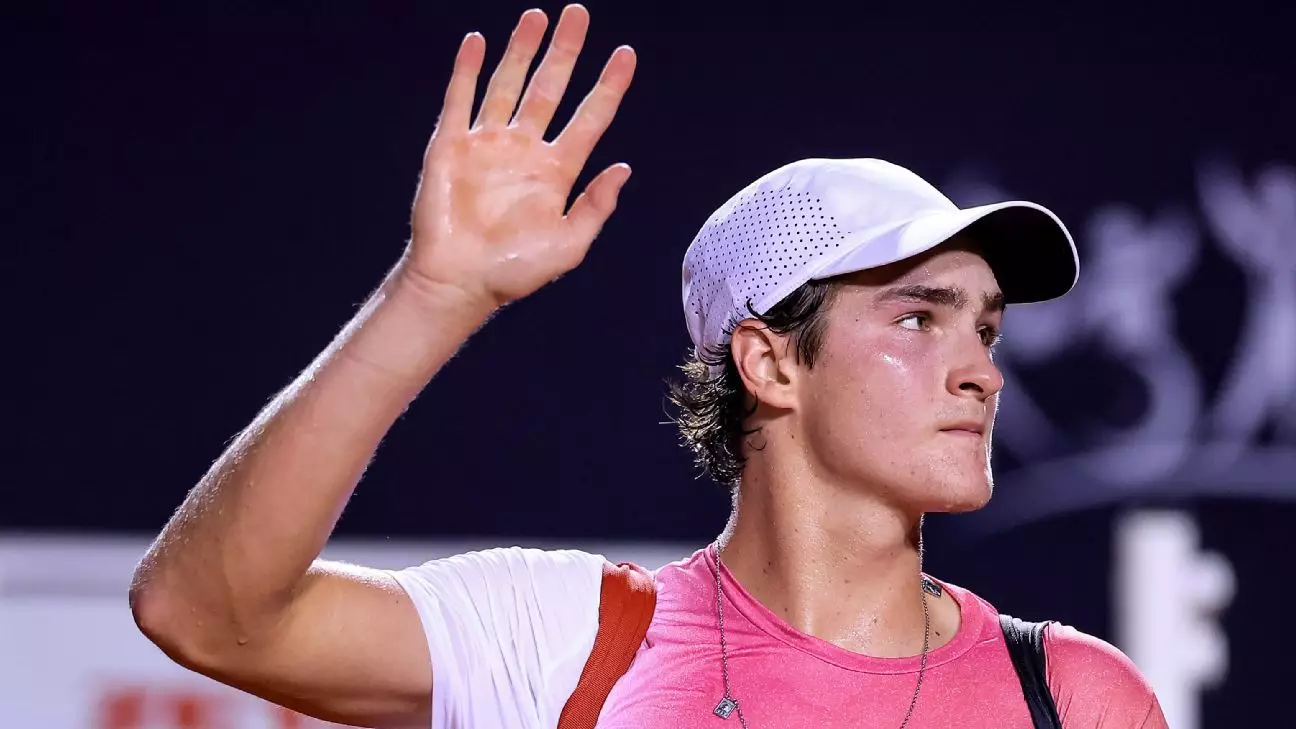João Fonseca, an 18-year-old talent from Brazil, has rapidly ascended the ranks of professional tennis, indicative of the promising future that lies ahead for him. After clinching his first ATP title at the Argentina Open, we witnessed the culmination of months—a landmark victory that positioned him as the first player born after 2006 to taste success at this elite level. This achievement not only marks a personal milestone for Fonseca, but it also places him among the youngest champions in ATP history.
His victory in Buenos Aires, where he demonstrated remarkable tenacity and skill, was celebrated as a significant achievement in Brazilian tennis, which has seen fewer champions in recent years. The buzz around the talented teenager was palpable, with fans eagerly anticipating his performance at the prestigious Rio Open, a key fixture in the ATP calendar.
However, the elation surrounding Fonseca’s first win quickly transformed into disappointment as he faced Game fatigue and intense competition in Rio. In his opening match at the Rio Open, he suffered a quick defeat against France’s Alexandre Muller, falling 6-1, 7-6 (4). It was a jarring contrast to his exhilarating weekend of triumph. The match highlighted Fonseca’s struggle with unforced errors—34 in total—which showcased a level of inexperience that many young athletes face when thrust into the limelight.
Despite the noisy support of approximately 5,000 fans cheering for him, Fonseca appeared overwhelmed and exhausted, hinting that perhaps he had yet to fully recover from his weekend’s exertions. Tiredness is an all-too-familiar aspect in the world of sports, especially for young athletes who are still navigating the demands of professional competition.
The Path Forward
Despite this setback, there are lessons to be learned from this experience. Fonseca’s journey is only at its inception, and every match—win or lose—contributes to his growth as a player. The celebration of his record-breaking title and subsequent fall in the first round does not define his future but rather serves as a reminder of the unpredictable nature of sports and the importance of resilience.
Muller, acknowledging the challenge of playing against a home favorite, praised Fonseca’s potential. His nuanced reflection on the match—expressing a mix of calm and tension—illuminates the psychological complexities involved in competitive play. The match against Muller could be prime fodder for Fonseca’s coaches and trainers, presenting an opportunity to analyze performance under pressure, a crucial aspect of an athlete’s development.
Looking onward, Fonseca’s upward trajectory is certain, given his immense talent and hard work. Rankings are bound to fluctuate, but expectations will remain high as he refines his approach and copes with the pressures of professional tennis. The Next Gen ATP Finals win and his earlier victories solidify his status as one to watch. The beauty of sports lies in unpredictability, yet those who persevere often emerge stronger. For now, fans and analysts alike will stay tuned to see how João Fonseca rebounds from this challenging experience; his career is only just getting started.

